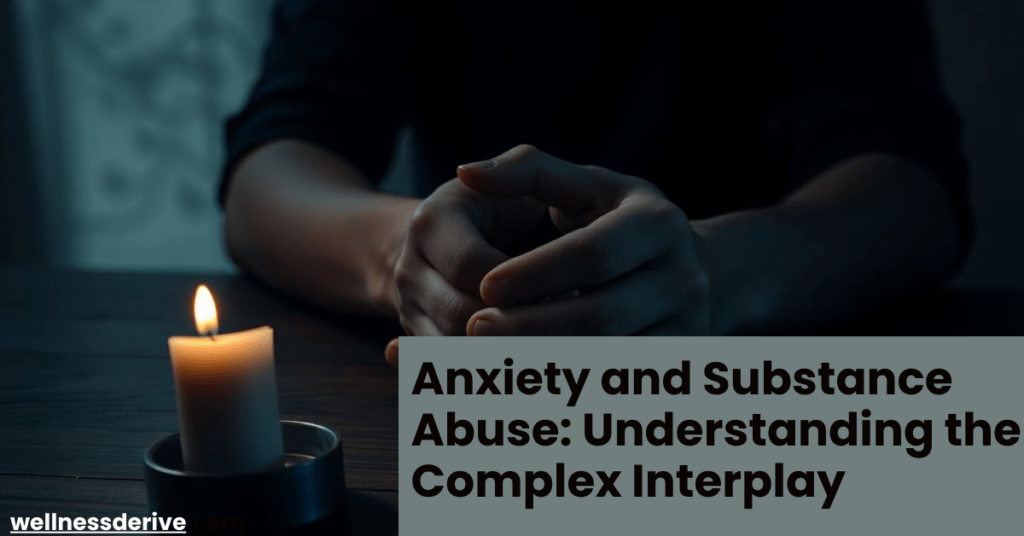An estimated 7.7 million adults in the United States face both anxiety disorders and substance use disorders. This shocking statistic highlights the widespread nature of these issues. Anxiety disorders involve excessive fear or worry, while substance abuse refers to a harmful pattern of alcohol or drug use. Understanding the connection between anxiety and substance abuse is crucial for effective treatment and recovery. Here are some key points to keep in mind.
The Anxiety-Substance Abuse Cycle: A Vicious Loop
Self-Medication Hypothesis
Many people with anxiety might turn to drugs or alcohol as a way to cope. This self-medication can seem like a temporary solution. Research shows that around 40% of individuals with anxiety disorders use substances to ease their symptoms. Unfortunately, this often leads to deeper issues.
Increased Vulnerability
Using substances to cope can actually make anxiety worse. Drugs and alcohol initially provide relief but can lead to increased anxiety as they wear off. The cycle continues, where dependence grows, and anxiety spirals out of control. The situation becomes a repeating loop of seeking comfort and facing worsening symptoms.
Withdrawal and Anxiety
When individuals stop using substances, they often experience withdrawal symptoms, including heightened anxiety. Substances like alcohol and opioids can intensify feelings of worry, making recovery challenging. For example, alcohol withdrawal can lead to severe anxiety, tremors, and even seizures, showcasing the tight connection between these two conditions.
Types of Substances Commonly Used to Cope with Anxiety
Alcohol
Alcohol is frequently used for its calming effects. While it may reduce anxiety in the short term, relying on it can lead to dependence and long-term mental health problems. Chronic alcohol consumption can worsen anxiety symptoms, creating a dangerous trap.
Cannabis
Cannabis is often thought to help with anxiety, but it can have the opposite effect for some individuals. Studies show that regular use of cannabis can increase anxiety levels, particularly in those predisposed to anxiety disorders. So, while it may offer temporary relief for some, it can escalate anxiety for others.
Prescription Medications
Certain prescription drugs, like benzodiazepines and opioids, are sometimes misused for anxiety relief. While they can provide short-term benefits, they carry significant risks, including addiction and worsening anxiety when not used as directed. This misuse complicates the treatment landscape for many individuals.
The Impact of Anxiety on Substance Use Severity
Increased Risk of Relapse
Anxiety can trigger relapse in those recovering from substance abuse. Heightened stress levels may push individuals back to familiar coping mechanisms, undermining their recovery efforts. This struggle emphasizes the need for integrated treatment.
Treatment Barriers
Untreated anxiety can pose significant challenges during substance abuse treatment. Those dealing with anxiety may find it hard to engage fully in therapy, hindering their recovery journey. It’s vital to address both issues simultaneously for lasting healing.
Mental Health Comorbidity
Many people with substance use disorders also live with other mental health conditions, including anxiety. This comorbidity can complicate treatment and lead to poorer outcomes if not addressed effectively.
Seeking Help: Treatment Options for Co-occurring Disorders
Integrated Treatment Approach
A holistic treatment plan addressing both anxiety and substance abuse is essential. Integrated approaches ensure that individuals receive care for both conditions simultaneously, enhancing the likelihood of successful recovery.
Therapy Options
Effective therapies like Cognitive Behavioral Therapy (CBT) and Dialectical Behavior Therapy (DBT) help tackle anxiety and substance abuse. These therapies focus on understanding thoughts and behaviors, teaching individuals how to manage their symptoms. Research supports their efficacy in treating co-occurring disorders.
Medication Management
In some cases, medication may be necessary to address anxiety and support withdrawal from substances. This approach can help stabilize mood and reduce cravings, making recovery more manageable.
Strategies for Managing Anxiety Without Substances
Lifestyle Changes
Making healthy lifestyle choices can greatly reduce anxiety. Regular exercise, balanced nutrition, and adequate sleep contribute to overall well-being. These changes are simple yet effective ways to combat anxiety naturally.
Mindfulness and Relaxation Techniques
Practices like mindfulness, meditation, and deep breathing exercises can significantly help in managing anxiety. These techniques promote relaxation and provide tools to cope with stressful situations without turning to substances.
Support Systems
Having a strong support network is crucial for recovery. Friends, family, and professional guidance can help individuals navigate the challenges of anxiety and substance abuse. This sense of community can make a meaningful difference in one’s journey toward recovery.
Conclusion
The connection between anxiety and substance abuse is complex and requires attention. Understanding this relationship is vital in pursuing effective treatment options. Seeking professional help for co-occurring disorders can set the foundation for recovery and improved mental health. Remember, with the right support and strategies, hope and recovery are entirely possible.
Disclaimer: The content on Wellness Derive is for informational purposes only and not a substitute for professional medical advice, diagnosis, or treatment. Always consult a healthcare provider for medical concerns.



